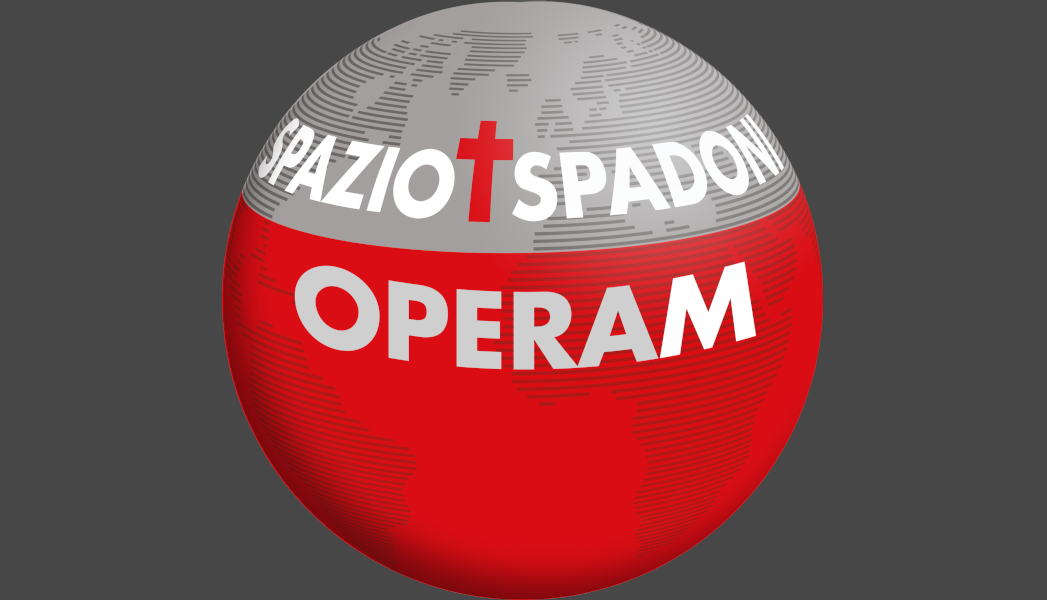
The Works of Mercy
Mercy as a response to God’s love
While waiting for the start of FARE SPAZIO, the convention of Spazio Spadoni Sicilia to be held in Noto from 15 to 17 September, we propose a valuable insight into the Works of Mercy by Biblical scholar Carlo Miglietta.
God is Mercy
Works of mercy, corporal and spiritual, are at the heart of the believer’s life. In fact, mercy does not only come from a feeling of compassion towards those in distress or from an ethical imperative of solidarity, but it is the very love of God that fills us and makes us overflow towards others, because God is Mercy. Indeed, “mercy, in the biblical sense, is much more than an aspect of God’s love. Mercy is like the very being of God. Three times before Moses, God speaks his name. The first time, he says: “I am who I am” (Ex 3:14). The second time: ‘I will give grace to whom I will give grace, and I will have mercy on whom I will have mercy'” (Ex 33:19). The rhythm of the sentence is the same, but grace and mercy take the place of being. For God, to be what he is is to do grace and mercy. This confirms the third proclamation of God’s name: ‘The Lord, God, merciful and gracious, slow to anger and abounding in grace and faithfulness’ (Ex 34:6)” (Taizé Community). Pope Francis affirms: “Mercy in Sacred Scripture is the key word to indicate God’s action towards us. He does not merely affirm his love, but makes it visible and tangible. Love, on the other hand, could never be an abstract word. By its very nature, it is concrete life: intentions, attitudes, behaviour that occur in daily action”.
“Merciful like the Father” (Lk 6:36)
If therefore God’s mercy precedes all our mercy, works of mercy, however, are our way of responding to God’s mercy. “Mercy is not only the action of the Father, but becomes the criterion for understanding who his true children are. In short, we are called to live by mercy, because we were the first to receive mercy” (Pope Francis).
Filled therefore with God’s mercy, we must pour out mercy to our neighbour. In her wisdom, the Church has always given concreteness to the command to be merciful. Already the Catechism of Christian Doctrine of Pius X enumerated seven works of corporal mercy, six of which were taken from Matthew chapter 25 (Mt 25:35-36). In fact, the Lord wanted to identify himself with the hungry, the thirsty, the stranger, the naked, the sick, the imprisoned: “As often as you did it to one of the least of these brothers of mine, you did it to me…; as often as you did it not to one of the least of these brothers of mine, you did it not to me” (Mt 25:31-46); “For he who does not love his brother whom he has seen, cannot love God whom he has not seen. This is the commandment we have from him: whoever loves God must also love his brother” (1 Jn 4:20-21).
Pope Francis exhorts us: “It is my fervent wish that the Christian people reflect… on the corporal and spiritual works of mercy. It will be a way to awaken our conscience, which is often drowsy before the drama of poverty, and to enter more and more into the heart of the Gospel, where the poor are the privileged ones of divine mercy. The preaching of Jesus presents us with these works of mercy so that we can understand whether or not we are living as his disciples… We cannot escape the words of the Lord: and by them we will be judged… In each of these ‘little ones’ Christ himself is present. His flesh becomes visible again as a battered, scourged, scourged, undernourished, fleeing body…, to be recognised, touched and cared for by us.”
“Blessed are the merciful” (Mt 5:7)
And he who is merciful will be happy. Jesus announces a true beatitude of mercy: “Blessed (makàrioi) are the merciful, for they shall find mercy” (Mt 5:7). Makàrios derives from makàr, an ancient term indicating divine happiness, the very condition of God: but at the time of the Gospels it is the only term available to indicate a ‘happy’ man in the broadest sense of the term. “To the merciful, Jesus promises nothing more than what they already experience: mercy… What more could God give to the merciful? Mercy is the fullness of God and of humans. The merciful already live by the very life of God… It is mercy that is the purest reflection of God in a human life. “By mercy towards your neighbour you resemble God” (Basil the Great). Mercy is the humanity of God. It is also the divine future of man” (Taizé Community).
